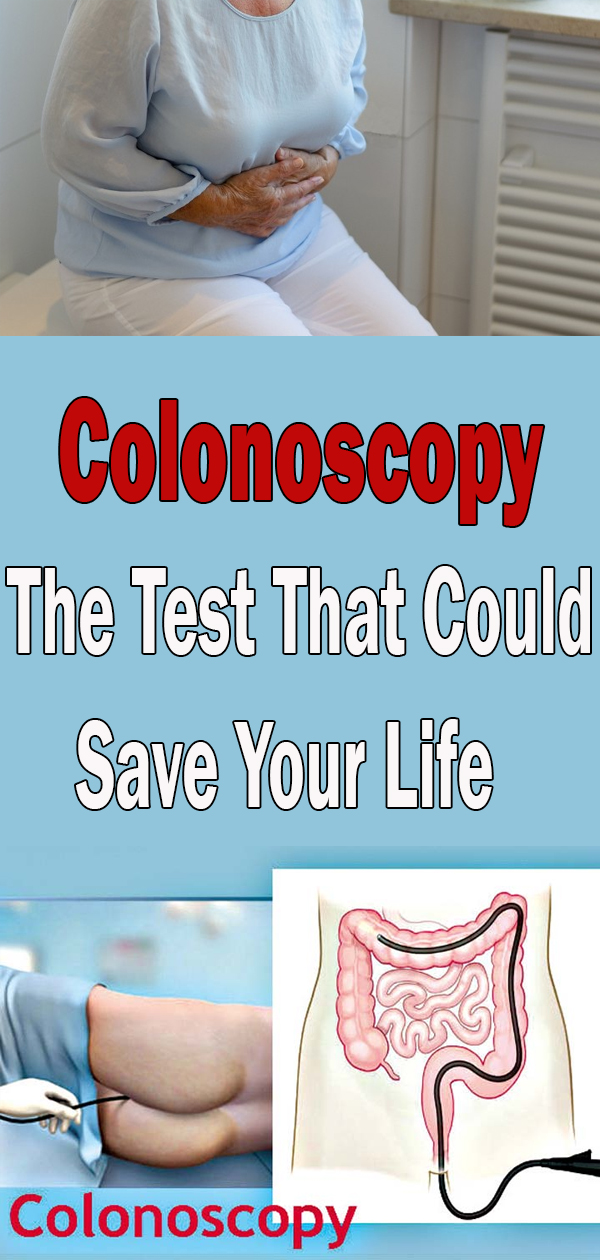Of all medical procedures, the colonoscopy is perhaps the one that gives people the most pause. While the test may be an uncomfortable concept, it could very well save your life.
Colon cancer is a relatively treatable disease when you and your doctor catch it early! And, this procedure is the best way to find early-stage colorectal cancer. Those whose colon cancer was diagnosed through colonoscopy have better results and a much lower death rate.
Taking the time to understand this important procedure and its possible role in extending your life is a worthwhile endeavor.
What Is A Colonoscopy?
This outpatient procedure is an examination of the inside of the large intestine. A long, flexible camera called a colonoscope is inserted into the rectum, allowing doctors to see inside and check on the health of the intestine. The entire procedure generally lasts between 30-60 minutes. The procedure will usually be performed by a gastroenterologist who has received special training in colonoscopy.
Before the procedure begins, you’re usually given medications to relieve pain and make you drowsy. This sedation makes the procedure easier to endure for many patients. For those who wish, it may be possible to undergo deeper sedation or even anesthesia. If the procedure makes you extremely anxious and sedation medications aren’t enough, it may be worth considering and discussing with your doctor.
The medications given before the procedure may prevent you from feeling much at all, but some do experience mild cramping. A great way to combat this discomfort is to practice some deep breathing exercises.
If the test reveals something abnormal, the doctor may perform a biopsy. This is where the doctor removes small amounts of tissue so it can be analyzed. When abnormal growths or polyps, are found, the doctor may remove them. This saves you from having a second procedure at a later date.
Preparing For A Colonoscopy
As with any medical procedure, it’s always important to tell your doctor about any health conditions you have. Your doctor should especially know about the following:
- you’re pregnant
- you have diabetes
- if you have a heart or lung condition
- you’re allergic to any medications
- you have a blood clotting disorder
- which medications you are currently taking
In some cases, your doctor may want you to take a course of antibiotics before the procedure.
It’s also important to communicate with your doctor about how you are feeling about the procedure, especially if you have any anxiety. Talking through your worries with your doctor may well help to minimize your fear and discomfort.
Restricting the intake of certain foods and fluids before the procedure may be necessary. You may be asked to limit or eliminate solid foods altogether a few days beforehand.
A key point of preparation for this test is the clearing out of the bowel. In order for doctors to clearly see the inside of your colon to check for abnormalities, it must be empty. To accomplish this, you may be asked to take laxatives or drink a special preparation to help clear you out.
You may have heard that this process is quite uncomfortable but it’s really not quite as bad as many make it out to be. It might be smart to undergo a colon cleanse before this. You will also receive enemas before the procedure to further clean out of the inside of the intestine.
Mental Preparations
Preparing physically for the procedure is only one part of successful preparation. You also need to prepare mentally. Taking time to calm your anxiety about the procedure can result in a better overall experience. You might try to some breathing techniques, aromatherapy using essential oils, meditation, or other techniques for reducing stress. Going into the procedure with less stress and anxiety will help. Being tense may make it more difficult so it’s wise to try to relax as much as you can.
What Happens After A Colonoscopy
After the procedure, you shouldn’t feel pain but you might experience a gassy feeling or feel a bit of cramping.
Because of the sedatives, you will need to arrange to have somebody drive you home afterward. You may feel a bit out of it for much of the day and it’s not safe for you to operate a motor vehicle.
If the doctor has removed any polyps or taken any biopsies, there may be a temporary adjustment to your medications. You can generally resume your typical diet right away after the procedure.
Complications
Complications are rare, but as with any procedure, they are possible. Possible complications include bleeding and even puncture of the colon. It’s very important to contact your doctor if you experience:
- prolonged or excessive bleeding from the rectum
- severe stomach pain
- fever or chills
Why Colonoscopies Are Important
Catching colon cancer early is very important. Early-stage colorectal cancer has a much lower mortality rate and a better overall prognosis. There are symptoms of colon cancer, especially at later stages, but the best way to catch it early on is a colonoscopy. If you do notice any symptoms of this cancer, it’s always good to mention them to your doctor. This might lead to having the procedure sooner than planned to see if the symptoms are caused by colorectal cancer or another condition.
A study of 25,000 patients in the VA system found that colonoscopies were associated with a 61 percent reduction in colorectal cancer mortality. That statistic is too significant to ignore. Colonoscopies save lives.
According to the CDC, colorectal cancer’s overall 5-year survival rate is 64 percent. That said, the survival rate when the cancer is caught early is 90 percent. Colonoscopies are the best way to catch cancer early so they ultimately make it more likely that you’ll survive this form of cancer.
Removing polyps during the procedure also has a significant impact on survival. A study from the New England Journal of Medicine found that removing cancerous polyps during the examination of the intestine reduced the chance of death by 53 percent
Colorectal cancer is quite common and it does run in families. When you have a family history of this type of cancer, your risk doubles. Family history also impacts when you should be tested. When a first-degree relative experienced colorectal cancer, you should begin undergoing annual colonoscopies once you are 10 years younger than they were upon diagnosis.
For most, the recommended age for the first time to have this test is 50 but those with a family history will often need to undergo the test at a younger age.
Other Things To Consider
Colonoscopies can save your life by helping to catch colorectal cancer at an earlier stage. The procedure may also alert you to precancerous growths or signs or other intestinal problems that are not cancer. The procedure may show evidence of other health conditions such as inflammatory bowel diseases, Crohn’s Disease, ulcerative colitis, diverticulosis, or parasites.
Preventing Colorectal Cancer
Catching colorectal cancer early results in a better prognosis. But there are also steps you can take to help prevent getting cancer in the first place. If you have a family history or other risk factors, it may be especially important to take positives steps toward prevention.
There is now significant evidence that diet plays a role in cancer. Studies show that around 5% of cancer cases directly arise from unhealthy diets. This number is small enough to show that eating a healthy diet isn’t a sure bet that will fully prevent cancer. However, it suggests that eating well definitely helps.
In addition to making sure you are eating well, ensure you consume a well-rounded variety of vegetables and whole grains. This includes getting enough exercise and taking care of your mental health.
All of these positive steps may help prevent cancer. This along with undergoing regular screening including getting annual colonoscopies will lead to a better prognosis and likely a longer life.
Final Thoughts On Colonoscopy
Nobody is excited about this lifesaving procedure but it is one of the most important medical tests you can have. Undergoing colonoscopies each year is the best way to catch colorectal cancer early on. Catching this cancer early gives you a much better chance of surviving it.
In addition to improving cancer prognosis and survivorship by helping catch it early, colonoscopies can also help diagnose other conditions. This will usually lead to an improved quality of life by giving you treatment options including lifestyle changes and medication.
There is no reason to feel embarrassed about this procedure. It may help to think about it as something everybody has to undergo. It’s something your doctor does with great regularity and they certainly won’t be judging you. A colonoscopy is relatively painless and it offers an extraordinary value in being a potentially life-saving diagnostic tool.


